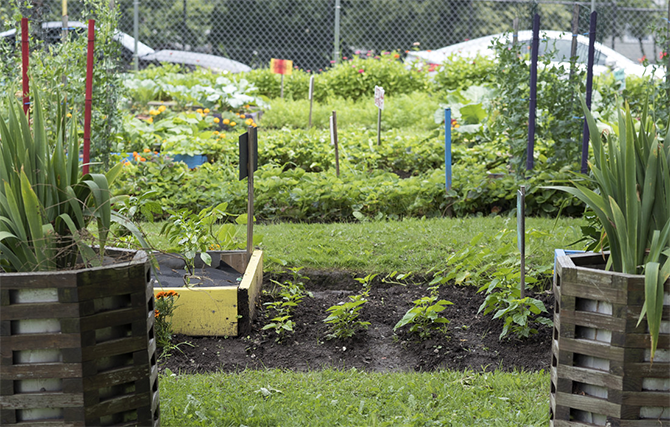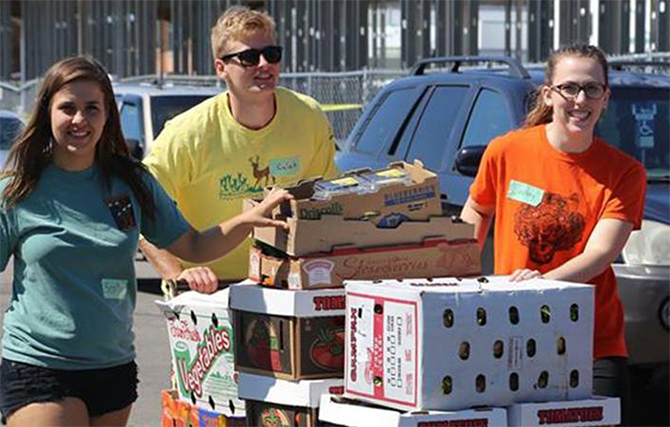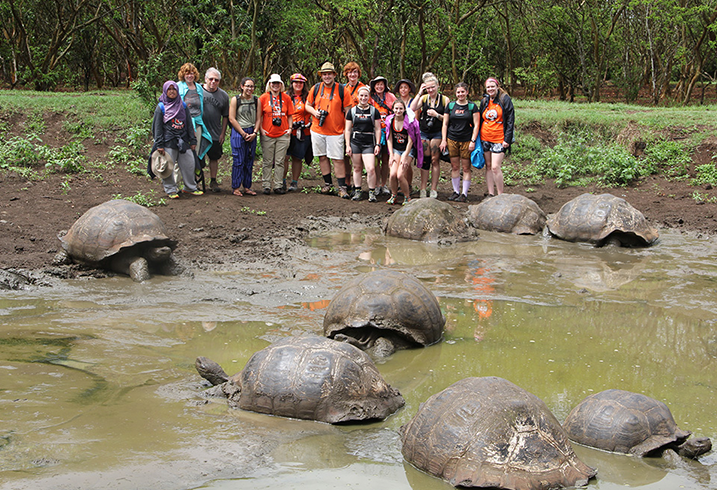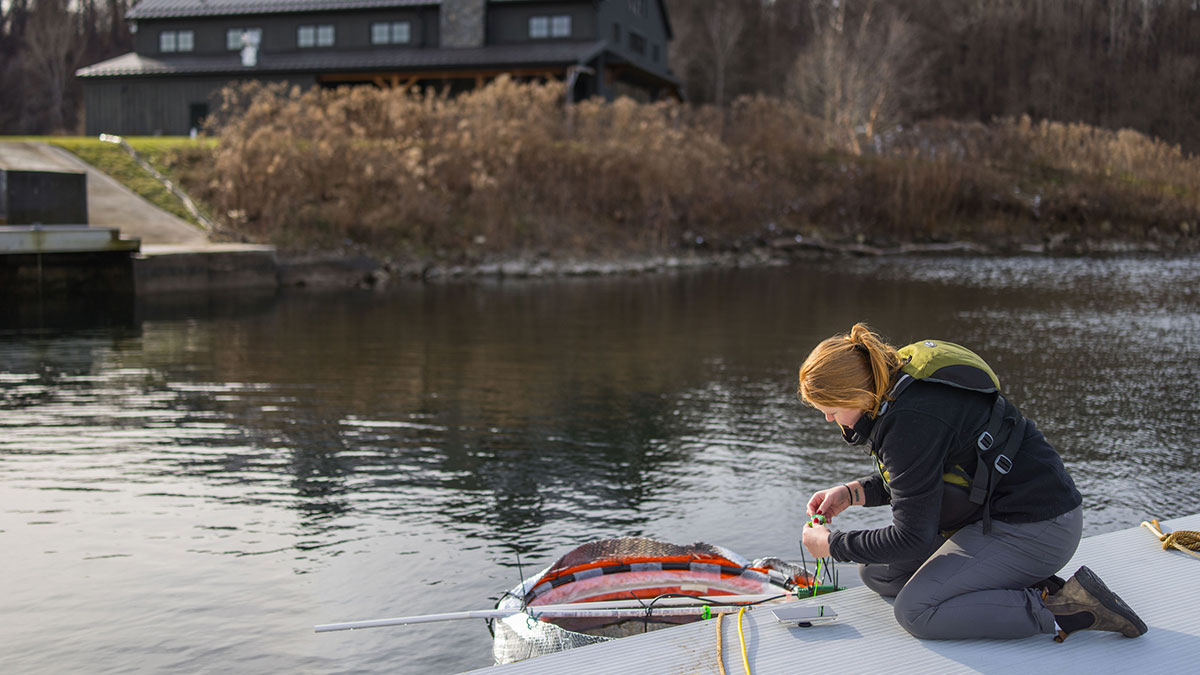Experiential Learning
One of the most impactful ways to better understand sustainability is through experiential learning opportunities. At RIT, these opportunities exist on campus, in the Greater Rochester community, and through global experiences.
The RIT Campus as a Living Lab for Sustainability
Using a living laboratory approach, RIT Sustainability works to connect the academic and operational spheres of the university to create experiential learning and applied research opportunities that enhance RIT’s ability to address sustainability challenges.
Examples of Living Lab Projects in Classes
Climate Change
Every spring, students in the interdisciplinary Climate Change Science class help advance RIT’s climate commitment through a research project into a local climate action issue.
Peer Education for Sustainability
Students in the Sustainability Educators course develop skills and projects to use on campus to engage their fellow students in RIT sustainability efforts.
Waste Audits
The Solid and Hazardous Waste Management class conducts a waste audit of different buildings on campus to examine waste diversion rates and identify opportunities to improve waste diversion.
Campus Food Insecurity
The concept for RIT FoodShare arose from a Campaign Management class research project in the School of Communication. Through partnerships across numerous campus departments, a Facebook Group was established in December 2014 to notify students whenever free food was available anywhere on campus and the center was opened in April 2015.
Making Maple Syrup
Every spring, students in the Maple Sugar and the Environment wellness course tap maple trees on campus, learning how the environment and climate impact syrup production while making their own syrup.
Gamifying Recycling
A student doing an independent study in Digital Humanities built a video game to teach people how to recycle right. Test your recycling skills with the Sort It Out game!
Carbon Sequestration potential in campus soil
Through an Environmental Science capstone project and Soils class, RIT students have been building and mapping an inventory of the carbon sequestration potential of the soils on RIT’s campus.
Project Wish List
Below is a list of some questions we would welcome help answering. If you’d like to work on one of these topics or have another idea for a research project, please email RIT Sustainability at sustainability@rit.edu. Also, please send us your final reports or findings once the project is completed.
Community Connections for Sustainability
Community-minded coursework, academic research, university partnerships, service projects, and numerous other avenues extend RIT’s sustainability efforts well beyond the boundaries of our campus. By doing so, we are working to ensure that the campus, the Rochester area, and the greater world in which we live will have a more sustainable future.

RIT and Seneca Park Zoo partnership
RIT and the Seneca Park Zoo Society formed a strategic partnership in 2017 to collaborate on programming that advances each organization’s mission, through access to resources, collaboration among staff and faculty, and student experiences for RIT students who can support SPZS operations. Current projects of the partnership include: roadside pollinator research, interactive game and exhibit design, and development of software database for impact measurement.

University/Community Partnerships program
The mission of RIT University/Community Partnership is to support and propel the implementation of neighborhood revitalization activities in the city of Rochester while broadening and deepening the educational experience for RIT students.

Into the Roc
Into the ROC gives students the opportunity to explore the unique challenges and cultural treasures in the Greater Rochester community. Participants spend an evening during the week or a few hours on the weekend either doing community service with a local nonprofit or enjoying a local play, comedy show, museum, or other cultural experience in the city.

Grand Challenges
As one of fewer than 63 schools in the world participating in the National Academy of Engineering (NAE) Grand Challenges Scholars Program, RIT students and faculty from the College of Liberal Arts and Kate Gleason College of Engineering are working together to improve life on the planet for all people by addressing 14 grand challenges.

Momentum II
This semester-long program is offered in collaboration with the Center for Leadership and Civic Engagement. Students are introduced to the Sustainable Development Goals, a collection of 17 global goals set by the United Nations; meet community leaders; and learn how the Global Goals connect to the Greater Rochester community.

Global Sustainability Experiences
There are a number of sustainability related global experiences through RIT Global. These include RIT-led study abroad programs to places like the Galapagos, Rwanda, Guatemala, and Sweden. At RIT Dubai, the Master of Science program in city sciences focuses on the use of data, smart technology, and design to create sustainable cities.



